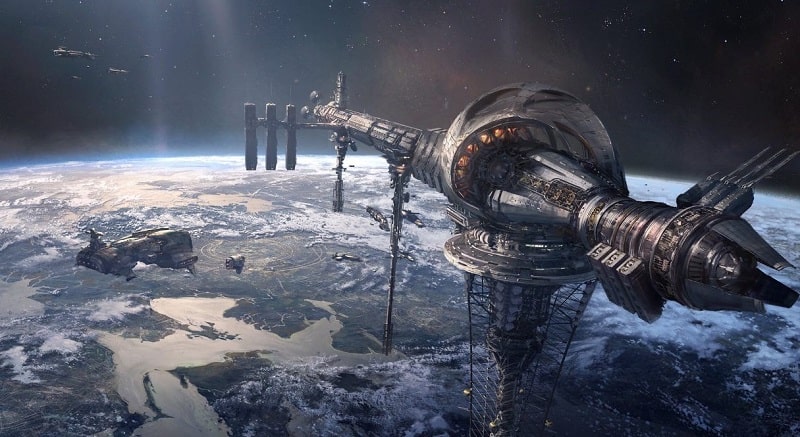The future of space

Joann Iren Gabrynowicz, a specialist in space law, talks about the future of space. He believes that colonies on Mars will struggle for independence from Earth’s metropolises and that minerals extracted from the Moon will be taken over by private corporations. However, these are not all the conclusions the expert has drawn. Below is a closer look at what the future holds for space.
Separatism in space
In 1959, the Soviet moon station Luna2 put a pennant with the Soviet coat of arms on the Moon, and six years later, the Venus 3 station left the same on Venus. In 1969, Neil Armstrong and Edwin Aldrin, American astronauts, placed the flag of the United States of America on the Moon. However, this was nothing more than symbolic gestures. And, of course, it had nothing to do with territorial claims. The Moon and Venus did not become the property of the USSR or the United States.
In the future, both states could only establish settlement on the planets. This is described in the Outer Space Treaty. Although it can be assumed that the jurisdiction of the states on earth will not last forever. In a few generations, people who were born and raised on Mars or the Moon will connect their identity with the Earth people. Consequently, the settlements in the solar system will become independent. The same can be said of other galaxies. It is likely that once they gain sovereignty they will form a federation or act alone. And one really wants democracy to flourish under either scenario.

Orbital law
Konstantin Tsiolkovsky used to say that space should belong to all people, not just to the leading powers. In 1997, a delegation of American scientists arrived in Moscow. They visited Baikonur, Tsiolkovsky`s house-museum, Star City and many other places.
Tsiolkovsky was thinking about spaceflight even when no one could believe it could be a reality. People did not believe it then, but now people are exploring space. The cooperation of 16 countries led to the emergence of the ISS. The station is subject to international law. If a worker commits any unlawful act against another member of staff performing a mission, he will be prosecuted under the laws of the country of which he is a national. If the nationality is not established, the offender will be handed over to the country whose nationality has been violated.
Talking to aliens
People on our planet are still divided along political, economic, ideological and other lines. However, there are a number of issues in space that need to be discussed by all together. One example is contact with extraterrestrial life forms. There are lawyers who deal with space law. They have consulted with anthropologists. Together they decided that if humans suddenly receive a message from an extraterrestrial civilisation, they should all decide together whether or not to respond to them. If so, what exactly.
Collision
There is one controversial point in the Outer Space Treaty. Most likely, no one paid attention to it during the drafting of the document. Asteroids cannot be assigned to any country or company. But there is nothing in the treaty to indicate ownership of the subsurface of space bodies. At the same time, any company or country that has claimed subsurface rights must be prepared for the possibility that others will want to challenge the decision. As of today, the issue is still open. It is to be hoped that it will be resolved soon.
